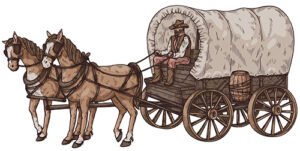Introduction
The funny story known as “The Hack Driver” was written by the American author Sinclair Lewis. It’s a funny story about a good lawyer and a rickshaw driver who get lost in a village while looking for Oliver Lutkins. Because the hack driver Bill was so kind to him, he quickly warmed up to the people who lived in the hamlet and developed an affection for the community as a whole. In the end, Lutkins was the one who successfully tricked the lawyer by posing as a hack driver.
Summary of the chapter
The protagonist of this piece is a recent law school graduate who finds work as an assistant clerk at a prestigious legal firm. The witness Oliver Lutkins, who resided in the nearby hamlet of New Mullion, required his personal service on more than one occasion. The protagonist was looking at a bright platform when he spotted a hacker.
Hack driver
The attorney hired Bill’s rickshaw to help him track down Lutkins. Bill was the one who led the lawyer on a goose chase to several places in search of Lutkins. When he learned of Lutkins, he naturally had questions. When the gang went to Fritz’s business, they were told Lutkins had gone to Gustaff barber for a shave, but when they followed him there, they found him playing poker. Also at Gustaff’s residence, they were unable to locate him, but word reached them that he had been spotted at the pool hall. He was last seen leaving the store with a pack of smokes, and his whereabouts have since been uncovered.
The more the attorney knew about Bill, the more he began to believe in Bill’s kindness and charity. As a result of his kind demeanour, he won the hearts of the locals. The shady driver recommended looking through his mother’s belongings for Lutkin’s. The awful truth about Lutkin’s mother, who threatened to burn them with an iron rod, was revealed when they visited her home. Once all was said and done, they were able to flee and save themselves. The attorney did not call for Lutkins and then he departed.
His supervisor gave him a nasty dressing down the next day and had him return to the village with a coworker who knew Lutkins. As soon as Bill arrived at the station, the lawyer eagerly offered to help him look for Lutkins. As soon as the lawyer found out that Oliver Lutkins had posed as Bill, he felt humiliated.
About the author
This narrative was written by an American author and dramatist by the name of Harry Sinclair Lewis. In 1930, he was honoured with the Nobel Prize in Literature for his work.
Conclusion
The cautionary tale “The Hack Driver” teaches us that we should be aware of the people in our immediate environment and not put our faith in anyone without conducting thorough research on them. This story reminds us not to put all our faith in other people without first investigating and exercising caution. When we judge others only primarily on their outward looks, we put ourselves in potentially dangerous situations.
Textbook Questions and Answers
1. When the lawyer reached New Mullion, did ‘Bill’ know he was looking for Lutkins? When do you think Bill devised his plan for fooling the lawyer?
Ans. At first, Bill was unaware that the lawyer was searching for him. Even though he knew he was needed as a witness, he wasn’t eager to testify; he must have drafted his plan when the lawyer told him he was looking for Lutkins.
2. Lutkins openly takes the lawyer all over the village. How is it that no one lets out the secret? (Hint: Notice that the hack driver asks the lawyer to keep out of sight behind him when they go into Fritz’s.) Can you find other such subtle ways in which Lutkins manipulates the tour?
Ans. When the lawyer is supposed to find Lutkins at a specific time, Lutkins never lets the lawyer get there. A hacker uses stories to convince the lawyer that Lutkins is a vagabond and scares him about Lutkins’ mother to fool the lawyer. Lutkins is never asked about by the lawyer, he just pretends to ask. Hence everybody in the village also supported Lutkins.
3. Why do you think Lutkins’ neighbours were anxious to meet the lawyer?
Ans. Because everybody in that village saw the lawyer, except Lutkins’ neighbours, when he got fooled by Lutkins. They were curious to see the person who got fooled so easily.
4. After his first day’s experience with the hack driver, the lawyer thinks of returning to New Mullion to practise law. Do you think he would have reconsidered this idea after his second visit?
Ans. I don’t think the lawyer would ever consider practising law at New Mullion because he was ashamed of himself for being fooled by Lutkins in front of the entire village.
5. Do you think the lawyer was gullible? How could he have avoided being taken for a ride?
Ans. I think the lawyer acted gullible. It would have been better if he had asked other villagers about Oliver Lutkins instead of believing everything he said.
6. Who is a ‘con man’, or a confidence trickster?
Ans. Someone who makes others look foolish is called a ‘con man’ or a confidence trickster. After gaining their trust, he gets anything he desires from them.
The Hack Driver Extra Questions and Answers
1. What is the moral of this story?
Ans. This story and its message are fantastic. This tale teaches us to be vigilant and research before blindly trusting others.
2. What is a hack driver?
Ans. Hack drivers are those who operate a cab or chariot for hire. Customers tend to go with the hack drivers in the train station or bus terminal.
3. How do people make a living in a village?
Ans. People in urban areas often migrate to rural regions, or “villages,” to work in agriculture. Around the settlements, we can see lush meadows, animals, and stunning hill stations.


